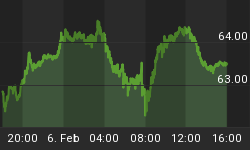In "'Lost generation' to suffer years of unemployment", Financial Times, 3 May, the legacy of Keynes was summed up by comments on Spanish youth,
"More than half of those under 25 are without work and face a bleak future. . ."
Some may never have a future after the Keynesian led collapse of their economy. Per that article Spanish unemployment is 24.1%. Greece is much better, only 21.7%. After decades of Keynesian debt financed consumption the verdict is in on Keynesianism. It is a complete and total failure!
Not only does it fail to produce prosperity, but ultimately produces massive unemployment. But yet, this addictive and destruction ideology is still advocated as the solution to the economic malaise of Western nations. Already some in Europe are advocating a "return to growth" policy. Austerity, the only way to deal with too much debt, is rejected by the leading thinkers, using that term quite loosely, of the mainstream economic community. Their advice is simple. If hitting one's self in the head with a hammer gives one a headache, use a bigger hammer.
If their policy prescriptions are right, why is the number of unemployed in the U.S. at a record number? If Keynesian was valid, with a cumulative deficit of almost $16 trillion the U.S. should be at full employment, with not a house in foreclosure. With a deficit over the past year of $1.285 trillion the U.S. should be a land of "milk and honey."

The solution is really quite simple. Remove from all policy making, both fiscal and monetary, all academically inbred Keynesian economists. In football a coach with a strategy that loses games gets fired. In economics, those with strategies that fail get a Nobel prize. One need only consider the damage done by more than two decades of policy ineptness at the U.S. Federal Reserve to realize that the U.S. does need change, in the form of a complete purge of academic Keynesians.
Above chart plots Federal Reserve Bank Credit in blue, using the left axis. That measure is essentially the size of the assets of the U.S. Federal Reserve. Readily evident in that chart is the massive liquidity injection of 2011. That initiative was intended to help the U.S. economy expand. As we now know, it was another Keynesian failure. It failed because of the massive structural damage done to the U.S. economy by previous policies. That is the same reason it did not lead to significantly higher inflation.
More important though is the red line which uses the right axis. That plot is of the year-to-year percent change of the size of the Federal Reserve's balance sheet. It indicates the impact on the dollar-based economy of Federal Reserve actions. It points to the future for the U.S. economy.

Another implication of that line is that quantity of dollars is expanding at a slower rate. At the same time Europe is in a massive recession that may not bottom until the middle of 2013. A short-term consequence of all that is that the dollar is the more desirable currency. Yes, longer term the dollar's fundamentals are miserable, but in the short-term they are better than others. That will be especially true with the damage to the EU likely to be done by a socialist government in France.
In the short-term, dollar appreciation is negative for Gold, and Silver. Additionally, the ramifications of Dodd-Frank in the U.S. will be increasingly felt as many of the restrictions on bank trading related activities takes place by the end of July and Basel III is to be implemented by year end. The Summer doldrums could be quite unpleasant in the Gold market.
2013 offers far better prospects for Gold. In January the massive Obama Tax Increase occurs. The Bush tax cuts and the totally irresponsible reduction in Social Security taxes both expire. The combination of that massive tax increase along with the mandated reductions in the growth of U.S. government spending will send the U.S. economy collapsing into Obama Recession II. At that time the risk of Keynesian "solutions" being implemented will be extremely high. Thus far the Obama Regime has been very good for Gold. If returned to power in 2013, a 48% probability, the second term should also be very good to Gold.
Finally, note that the a ramification of a socialist government in France and a possible continuation of the Obama Regime is that the value of the Chinese Renminbi is enhanced. Longer term, the Renminbi should perform better than both the Euro and the dollar. Investors should be establishing positions in the Renminbi to complement their Gold holdings.
GOLD THOUGHTS come from Ned W. Schmidt,CFA,CEBS as part of a now victorious mission to save investors from what became the financial abyss of paper assets, and the now the great Silver Bear Market. He is publisher of The Value View Gold Report, monthly, and Trading Thoughts. To receive these reports, go to: www.valueviewgoldreport.com















